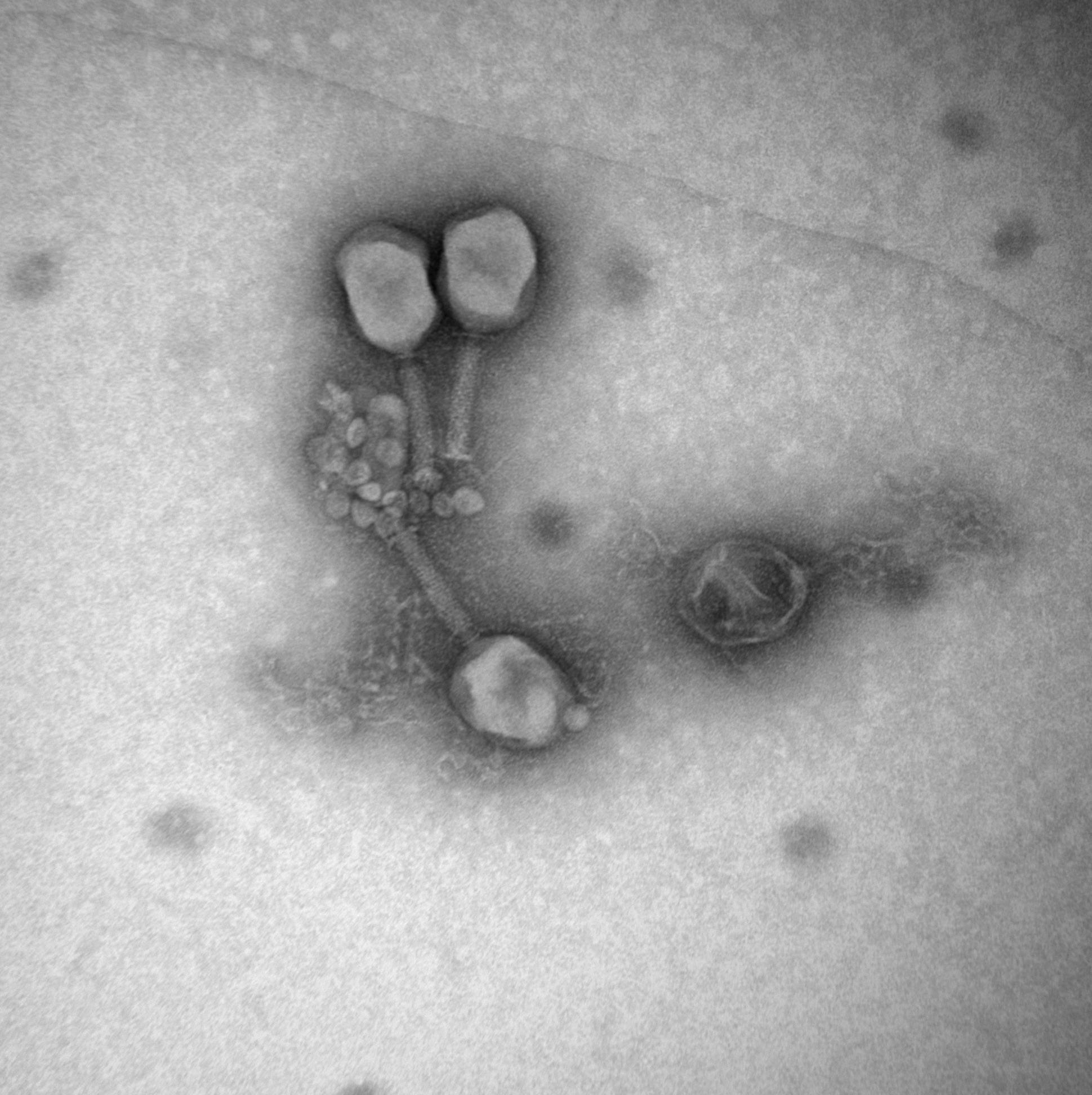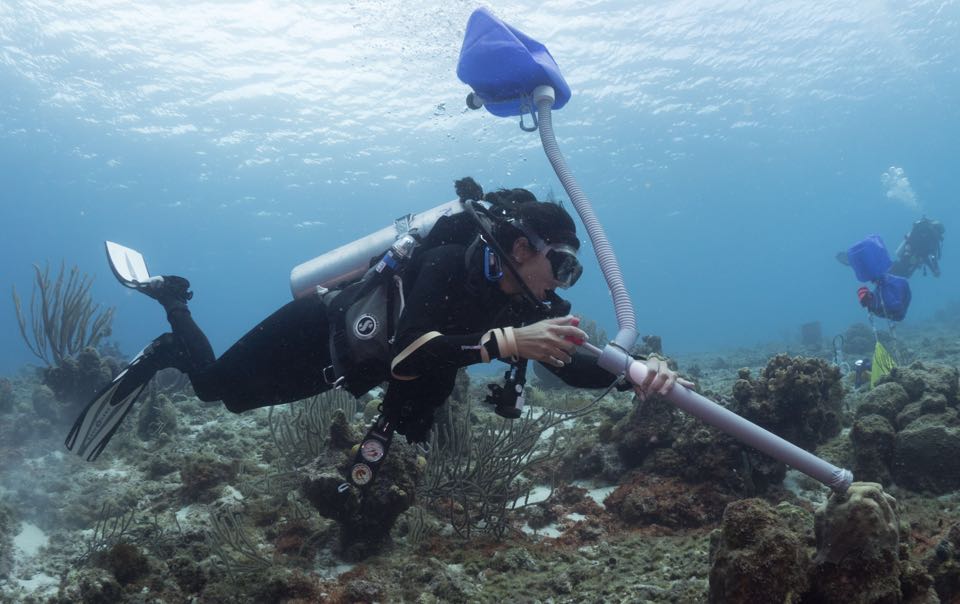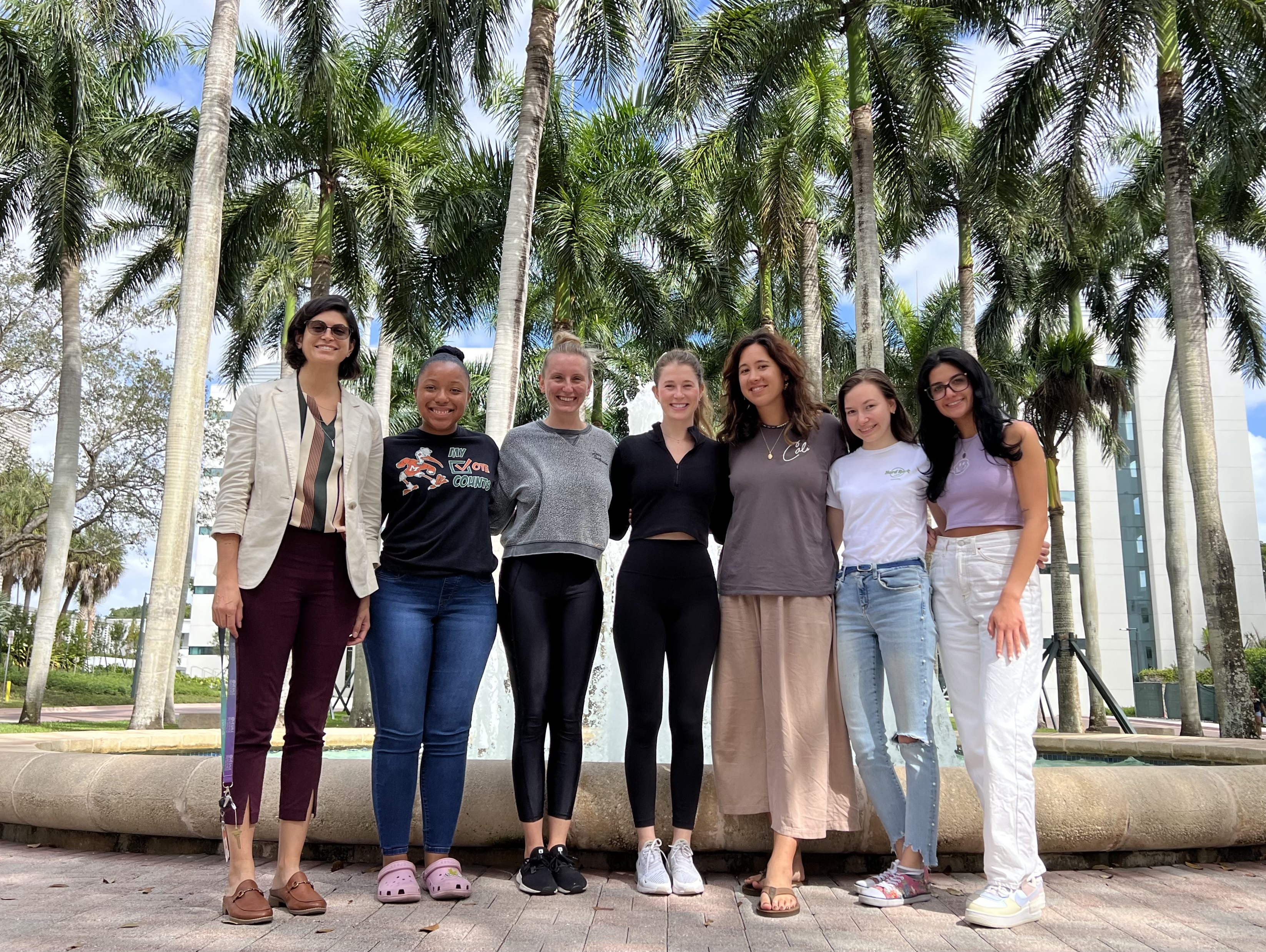 Cynthia Silveira is a microbial ecologist studying viruses that infect bacteria, the planet's most abundant and diverse biological entities. Viral infection regulates the abundance and physiology of microbes, impacting microbially-mediated dynamics that regulate ecosystem productivity and global biogeochemical cycles. The Viral Ecology Laboratory of the Biology Department, led by Dr. Silveira, applies genomics, field sampling, and microbiology tools to unveil how viruses shape their environment. They focus on DNA viruses that inhabit aquatic environments, including coral reefs, anoxic lakes, and those associated with animals and algae.
Cynthia Silveira is a microbial ecologist studying viruses that infect bacteria, the planet's most abundant and diverse biological entities. Viral infection regulates the abundance and physiology of microbes, impacting microbially-mediated dynamics that regulate ecosystem productivity and global biogeochemical cycles. The Viral Ecology Laboratory of the Biology Department, led by Dr. Silveira, applies genomics, field sampling, and microbiology tools to unveil how viruses shape their environment. They focus on DNA viruses that inhabit aquatic environments, including coral reefs, anoxic lakes, and those associated with animals and algae.
Viruses are not always killers: they can often be harmless or even beneficial. The different ways viruses interact with their hosts have dramatically distinct outcomes for microbial communities. One of the main goals of Dr. Silveira’s lab is to identify what makes viruses antagonistic, killing their hosts, or mutualists, giving their hosts a boost on survival. On coral reefs, these two routes of virus-bacteria interactions may mean the life or death of corals because corals depend on some bacteria to resist stress, all the while being susceptible to infection by other bacterial groups. The Silveira Lab has pioneered the application of modern DNA sequencing technologies to coral tissues and surrounding seawater, revealing which viruses are actively killing bacteria and which ones are colluding with their hosts.
|
Above: A Transmission Electron Micrograph of a bacterial virus.
Below: Professor Silveira sampling water from coral reefs in Curaçao for viral metagenomic sequencing.
|
 During infection, viruses often
During infection, viruses often
transfer to the host genes that bring in new functions or modulate existing metabolisms. In the oceans, viruses that infect photosynthetic bacteria can be responsible for 50% of the oxygen produced by these cells. The Silveira Lab has recently discovered that viruses also carry genes that can affect photosynthesis, pigment production, and sulfur metabolism in photosynthetic bacteria of anoxic lakes. These environments are used as proxies for understanding life on early Earth, when the oceans did not have oxygen, and potentially on other
planets that may have held anoxic oceans. The Silveira Lab was awarded a grant by the NASA Exobiology Program to study viral infections of photosynthetic bacteria in these lakes in collaboration with geochemists at the University of Lausanne, the University of Indiana, and the University of Pittsburgh. This research will reveal the biological signals that bacteria – and their viruses – leave on the geologic record, here and on other planets.
Cynthia Silveira is passionate about bringing her research to the classroom. In General Biology and especially in The Biology of Viruses, a capstone/graduate course, Dr. Silveira creates many points of intersection between her research and course topics. The Biology of Viruses is a project-based course where students analyze viral genomes and discuss the latest discoveries in virology. These discussions spark new questions, creating an exciting synergy between virus research and teaching.




 Cynthia Silveira is a microbial ecologist studying viruses that infect bacteria, the planet's most abundant and diverse biological entities. Viral infection regulates the abundance and physiology of microbes, impacting microbially-mediated dynamics that regulate ecosystem productivity and global biogeochemical cycles. The Viral Ecology Laboratory of the Biology Department, led by Dr. Silveira, applies genomics, field sampling, and microbiology tools to unveil how viruses shape their environment. They focus on DNA viruses that inhabit aquatic environments, including coral reefs, anoxic lakes, and those associated with animals and algae.
Cynthia Silveira is a microbial ecologist studying viruses that infect bacteria, the planet's most abundant and diverse biological entities. Viral infection regulates the abundance and physiology of microbes, impacting microbially-mediated dynamics that regulate ecosystem productivity and global biogeochemical cycles. The Viral Ecology Laboratory of the Biology Department, led by Dr. Silveira, applies genomics, field sampling, and microbiology tools to unveil how viruses shape their environment. They focus on DNA viruses that inhabit aquatic environments, including coral reefs, anoxic lakes, and those associated with animals and algae. During infection, viruses often
During infection, viruses often